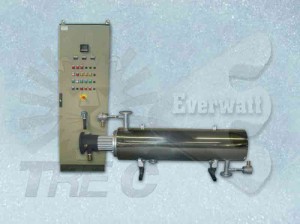 GENERAL CHARACTERISTICS:
GENERAL CHARACTERISTICS:
Electric heaters for liquid fluids are called electric heaters installed on board a pressurized cylindrical container for use in explosive atmosphere; are made to meet the most varied industrial applications in the heating of liquid fluids, whether they are water, oil or other solutions in varying concentrations.
This type of heaters guarantees high performance and efficiency in maintaining high volumes of fluid fluids in forced circulation; the heating elements that make up the tubular bundle may mainly consist of U-shaped, eyebolts or torch-wound shapes.
This type of resistors is designed for horizontal and vertical installation, in the direct heating of fluid fluids in forced circulation, as well as indirect indirect heating of fluids for the most unlimited uses in the major industrial sectors.
Thermal exchange is guaranteed by the use of suitably designed seals (usually 50% or 75% diaphragms or laser cut spacers) to maximize the heat produced by electric resistors with reduced load loss (expressed in millimeters of water columns – mmH2O).
The use of high-quality materials within our production cycle enables our process electric heaters to achieve high operating temperatures and a medium to long-term operating life.
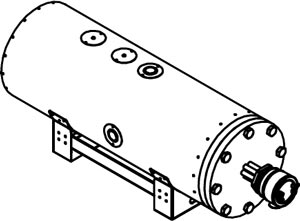
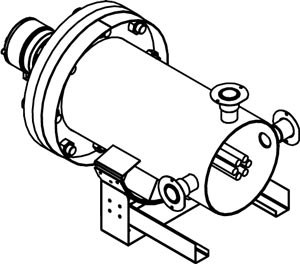
USE
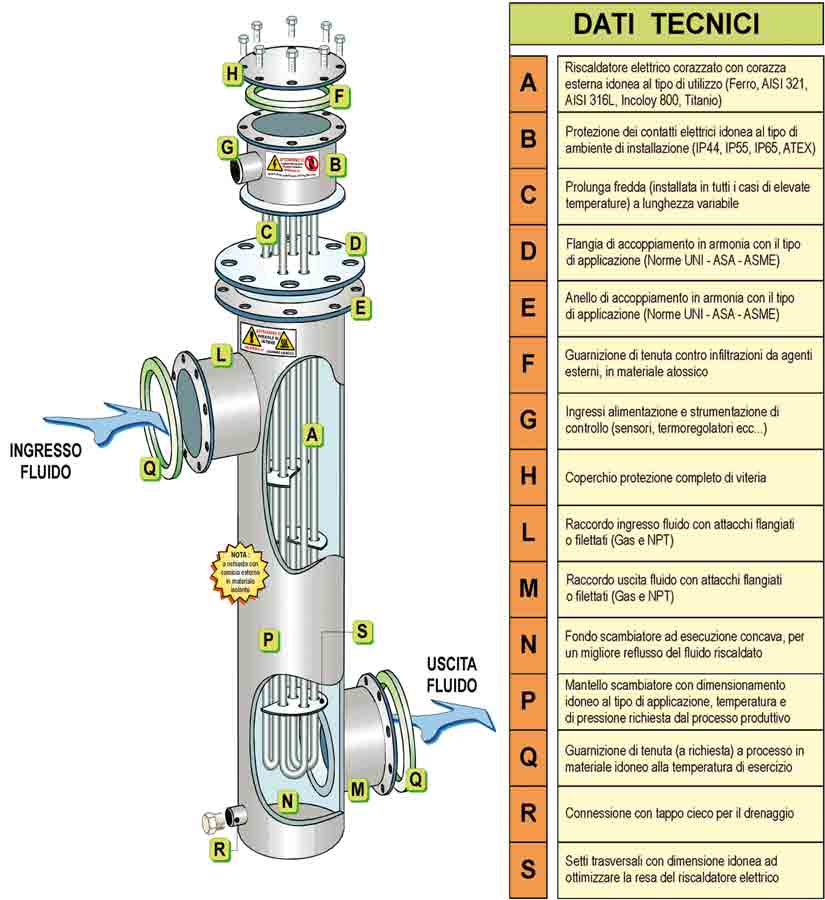 This type of heaters guarantees optimal thermal exchange, even in very compact dimensions, and at the same time, control the fluid temperature very precisely, especially if the power is controlled by a SCR (Solid Control Relais) control system.
This type of heaters guarantees optimal thermal exchange, even in very compact dimensions, and at the same time, control the fluid temperature very precisely, especially if the power is controlled by a SCR (Solid Control Relais) control system.
To ensure the design of an efficient flush diving electric heater, you need to know the following technical parameters:
Location / Installation Environment ( Zone – full encoding area, gas group and temperature class)
Fluid type to be heated (water, oil or other acidic and / or basal solutions in concentration): in detail its physical, chemical and thermodynamic characteristics
Maximum heater size (resistance + thermal coat) to accommodate the heater
Operating Temperature and Working Pressure
Project Temperature and Project Pressure
Flow rate flow rate in Nm3 / h
Fluid velocity in meters per second (L / s)
Room temperature
Exit temperature (of the thermally treated liquid stream)
Surface Density (W / cm²), where known
To ensure that these products are installed in hazardous and explosive atmospheres, electrical wiring is housed and hermetically sealed inside one or more enclosures of electrical wiring or tested for use in explosive atmospheres with a protective index IP65 / 66.
The armored heating elements installed on board these special heaters are also drawn and positioned with a precise lay-out, so as to make the heat exchange optimal.
Each element is welded to TIG or silver alloy welded on unified DIN or ANSI flanges or on flange unity joints of variable size depending on working pressure and working temperature.
The skin temperature on the elements depends on the output temperature required by the specific application and the surface load (W / cm²) above, of course the type of fluid to be heated and its speed, measured in Liters per second (L / s ) or in cubic meters per hour (m3 / h).
The head of explosion-proof electrical connections is the area most stressed by the application to which these heaters are subjected.
We are able to produce process heaters with -certified anti-deflagrant (certified for use explosive atmosphere Eex-de, Zone 1 and 2 – II2G / D ) CE markings, fully compliant with recent CEI and CENELEC standards.
This type of liquid heating process heaters is made of high quality materials for the heating tubing of carbon steel, stainless steel AISI304, AISI321, AISI316L, AISI316L S.S., Incoloy800, Incoloy825 and Inconel.
The pressurized tank housing the tube bundle can be made of Carbon Steel, AISI304, AISI316, electrically or extruded, or, alternatively, in special Superduplex SAF-2507 specialty material for marine applications.
The power can be concentrated in one or more power stages with the respective inlet inputs of the Gas, Metric, BSP, NPT or Gk pitch connections. also used for the independent power supplies of the thermoregulation devices installed on the heating heater.
TYPICAL JOBS
CERTIFIED QUALITY PRODUCT
The entire production cycle of our electric heat exchangers for immersion is subjected to the most rigid dimensional and electrical tests according to our ISO 9001: 2008 certified quality system and in full compliance with the requirements of current CEI standards / EN (EN60079-0:2012, EN60079-0:2012/A11:2013, EN60079-1:2007, EN60079-31:2015-05, ATEX 2014/34/UE and, where required, PED2014/68/UE).
TECHNICAL DATA
The part of the electrical wiring is housed inside standard carbon or stainless steel IP65 / IP66 stainless steel enclosures or headings, classified as E x-de IIB and IIC explosion proof headlamps for class temp. T1-T6 II2G- for use in explosive atmospheres (II2D Ex-tD A21 IP6X TX).
| Temp. Class | ||||||||||||
| ‘T6′: 85°C | ‘T5′: 100°C | ‘T4′: 135°C | ‘T3′: 200°C | ‘T2′: 300 | ‘T1′: 450°C | ||||||||||||
| Lungh. Z.N. / Cold zone Lg. | A | B | A | B | A | B | A | B | A | B | A | B |
| 300 mm | T6 | X | T4 | X | T3 | X | T3 | X | T2 | X | T2 | X |
| 250 mm | T6 | X | T4 | X | T3 | X | T3 | X | T2 | X | T2 | X |
| 200 mm | T6 | X | T4 | X | T3 | X | T3 | X | T2 | X | – | |
| 150 mm | T6 | X | T4 | X | T3 | X | – | – | – | |||
| 100 mm | T6 | X | T4 | X | T3 | X | – | – | – | |||
| 0 mm | T6 | X | – | – | – | – | – | |||||
| Working Temp. | 0°C | 100°C | 150°C | 200°C | 250°C | 300°C | ||||||
| Legenda:
A = Temp. Class B = Ex-proof head Temp.-proof allowance |
(X)= Yes |
(–)= Not |
||||||||||
This type of heat exchanger for liquids is suitably equipped with efficient thermoregulators (control thermostats with adjustable temperature range, automatic or manual reset, or alternatively, skin safety thermostats with cut-out of intervention, thermoresistant PT100 and / or thermocouples “J” or “K”), suitable for protecting the heater from overheating and possible premature damage. On the board of the electrical wiring, according to the specific needs of the customer, the power inputs (NPT or GAS) are also sized according to the number of installed elements, the power and the hollow which determines the cable section .
Depending on the specific temperature and the amount of air to be heated, it is possible to configure the design of the electric heat exchanger consisting of one or more pressurized (also suitably insulated) reservoirs connected in series with each other and one or more heads side by side or placed at each other end of the mantle as shown below:
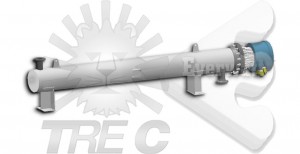
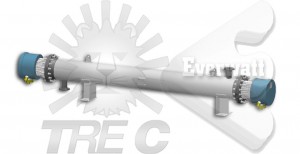
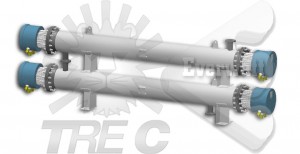
ELECTRIC PANELS FOR CONTROL OF HEAT EXCHANGERS FOR LIQUIDS
On customer specification and the requirements of the plant on which our electric heat exchanger (electric heat exchanger) will be installed, we will build control panels in the presence of areas classified as Zone 2 and Zone 1, running EExp , With various functions for controlling our heaters. These frames are suitable for both indoor and outdoor installations; complete equipment in every detail and technical feature, both in terms of power control and process control.
The extensive experience gained in the electric heating sector has enabled us to design, create and optimize effective process control solutions in various application areas, as well as Oil & Gas in different countries, even outside the EU, and for installation in safe area, explosive atmosphere (Zone 2 and Zone 1), providing our customers with commissioning services through our highly specialized staff.
Here are some of the most important features that we can supply on our electric boards:
SOME EXAMPLES: